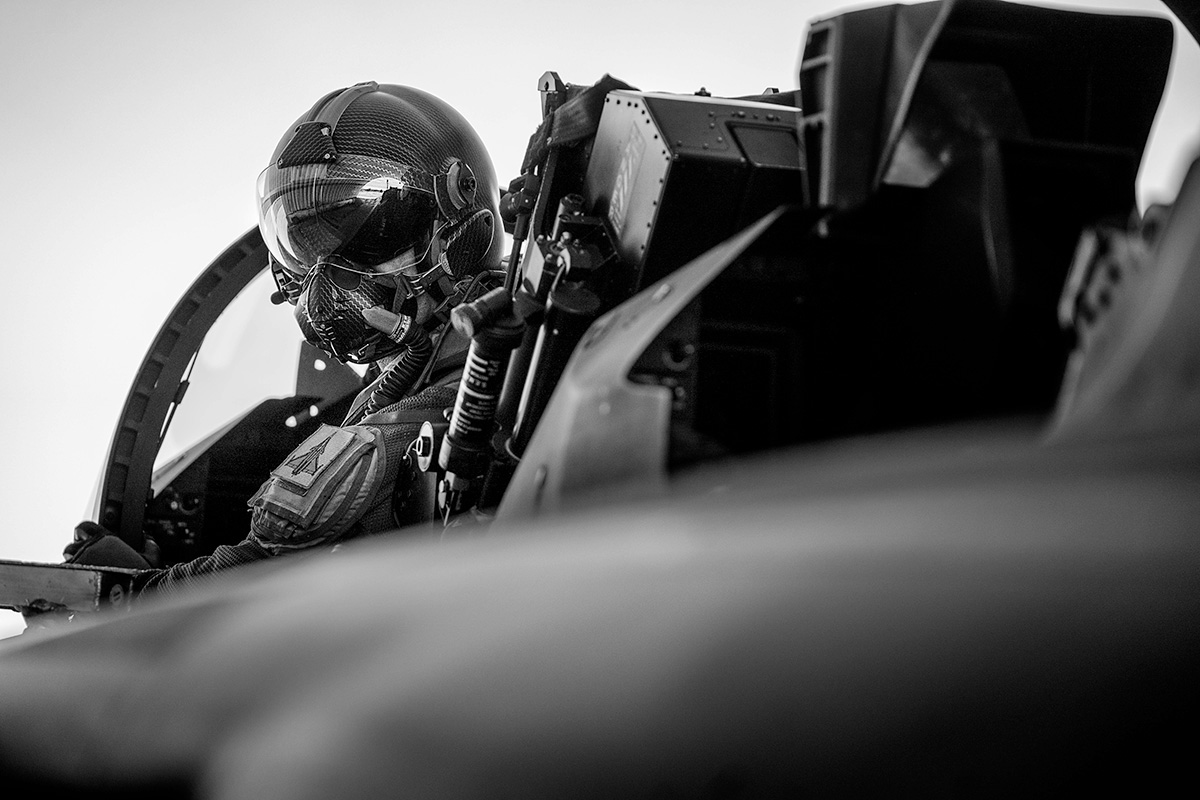 Aerospace and Defense Actors
Aerospace and Defense ActorsHumanity has faced and gone through many crises throughout its history and, having done so, developed a degree of what is referred to as global resilience. And it is precisely there, at the crossroads between collective unconsciousness and individual unconsciousness that our traditional resilience will disrupt. This time, the word resilience will take on a whole new meaning for humanity.
March 31, 2020
Humanity has faced and gone through many crises throughout its history and, having done so, developed a degree of what is referred to as global resilience. And it is precisely there, at the crossroads between collective unconsciousness and individual unconsciousness that our traditional resilience will disrupt. This time, the word resilience will take on a whole new meaning for humanity.
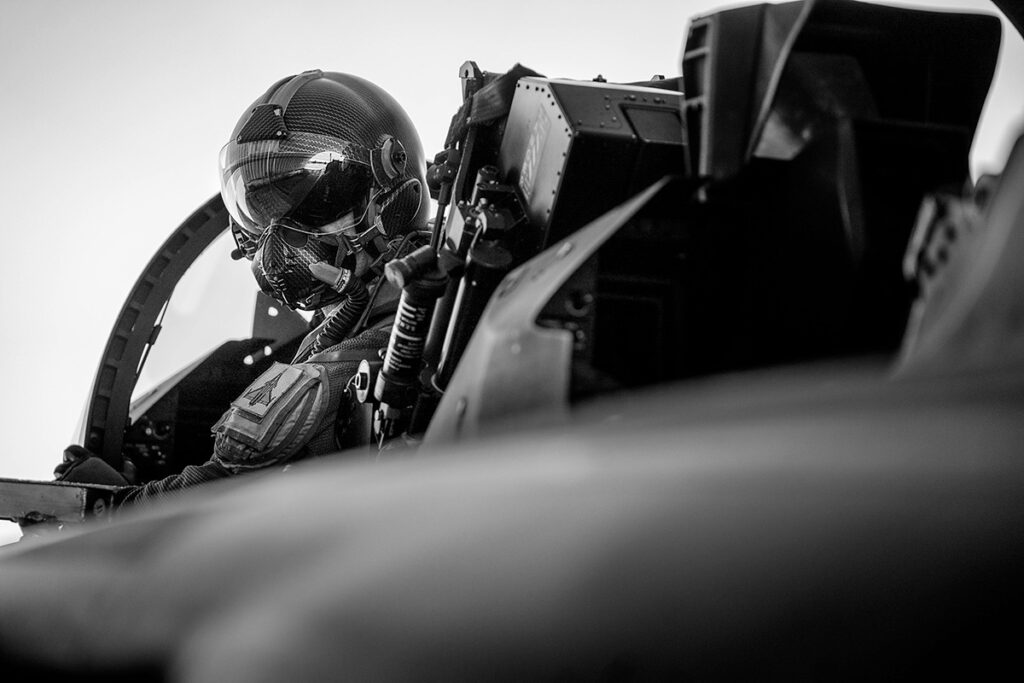
During his last allocution, French President Emmanuel Macron used the expression “we are at war” no less than six times, so that everyone understands the gravity of the situation, as it has been too far underestimated until then.
Humanity has faced and gone through many crises throughout its history and, having done so, developed a degree of what is referred to as global resilience. And it is precisely there, at the crossroads between collective unconsciousness and individual unconsciousness that our traditional resilience will disrupt. This time, the word resilience will take on a whole new meaning for humanity.
If the legacy of our collective unconscious forces us to believe that resilience is only linked to the perception of threats and the way in which we overcome them to return to our initial state, it will probably be different after the coronavirus episode. What form do these threats take in reality?
Challenges, obstacles, or “Épreuve,” as the French expression, can be overcome.
From our earliest childhood, we all know that we cannot pass through life without experiencing some trials. It is the learning of our way to grow in our living environment. We know that we will endure the loss of our loved one, experience difficult problems at work, fall ill, or even lose our jobs at some point.
We typically endure and survive these negative experiences through the support of family, friends, or our respective religious faiths.
Yes, we suffer during these adversities; however, we do not let them destroy us.
However, the challenge that Coronavirus presents to humanity is by no means simple. It is not a simple “Epreuve.” The world will change, the face of the world won’t be the same after this dramatic episode.
The trials that humanity is facing at the hands of this silent enemy are significantly different than the challenges we encounter when we experience a hardship or shock. The new Resilience Paradigm has to be accepted, integrated, understood and applied. Our understanding and vision of the world will change. We are not prepared, there is no procedure nor lesson learned from past experience on such archetype.
Many of us naively think we will never be impacted by events such as Coronavirus: We believe that the losses and illnesses that are caused by this relentless virus will affect others, but not us. As such, when we do encounter the unexpected, the implications can be immense.
This crisis is also economic. Its fallout is already catastrophic. It could be the most serious crisis ever encountered by our Economy. Many industries are going to face a battle for survival in the weeks and months to come. We must assimilate that we must be resilient to get out of the crisis but above all mobilize to adapt to the profound changes that our world will have to make.
We have to question our very existence, and everything we previously believed about ourselves is thrown into question. Our emotions become disrupted, and this directly affects our reason. This disruption comes from the loss of control we experience having been firmly supplanted beyond our comfort zone.
Suddenly, our lives are beyond recognition. Fuel prices are falling dramatically, pollution levels have hit new lows, flights are grounded, schools have shut, and people have so much time on their hands they don’t know what to do with it. While companies must above all protect themselves against vulture’s funds, employees - also parents - stay at home, and work is no longer a priority. Suddenly, silently, we turn our thoughts inward and reflect on the vulnerability of human beings. Doubt is our enemy, our traditional resiliency is affected.
In an instant, we realize that we are all in the same boat. There is no more rich and poor, no more boundaries between us. Themselves of the supermarket are empty, the hospitals are full…and money is not the only solution to this problem.
In just a matter of days, the Universe has established the social equality that we all thought was impossible to restore.
How will COVID-19 shape the future?
Are we prepared to move out of this nightmare but on the other side of the tunnel, where some of our referential have changed, where some of our habits are over, forever?
This initiative of paper was inspired by the many interviews and discussions I had with senior executives and leaders from the Aerospace and Defense industry.
They have the same fears, they share the same constraints and they make the same observation on the situation. It became to me obvious to give my feelings and wishes to help the industry by sharing those extraordinary testimonies.
I would like to thank General Denis Mercier for his particular contribution and all the other industry executives interviewed for sharing their expertise in the field of Aerospace and Defense. They kindly agreed to answer some of my questions with the goal of helping me to share understanding of the real threats and changes humanity will be facing in the coming months. I hope, armed with this knowledge, we will find the courage and resilience to empower ourselves to positively and resolutely embrace the new life that awaits.
Resilience is the ability to mentally or emotionally cope with a crisis or to return to pre-crisis status quickly.
According to the words of Napoleon Bonaparte, a war is won by defeating the strategy of the enemy by the perfect knowledge of that same one but especially the knowledge of his troops and his capacities. How to benefit from his precious advice when all the fundamental assumptions and principles collapse?
So much uncertainty and ignorance on our enemy; as such, we are forced to rely on our resilience and our capacity to adapt to this dynamic and unremitting invisible and unpredictable enemy.
While in confinement, we need to prepare companies and humanity to face the new world that will emerge after Coronavirus.
Resilience exists in people who develop psychological and behavioral capabilities that allow them to remain calm during crises and progress to move on from the incident without long-term negative consequences. Our chances of success are now based on this ability to adapt to this new and dynamic environment while preparing a new path forward.
We have no choice but to face this crisis head on. There is no escape chute or get-out clause. The world is now in need of leaders who can lead people to find their place in this new world and find the resilience they need to surmount the challenges that will evolve.
The ultimate goal is to ensure that the knowledge and potential of each individual are fully harnessed and exploited. By coming together and sharing our talents under courageous leadership, we can shape a whole new world.
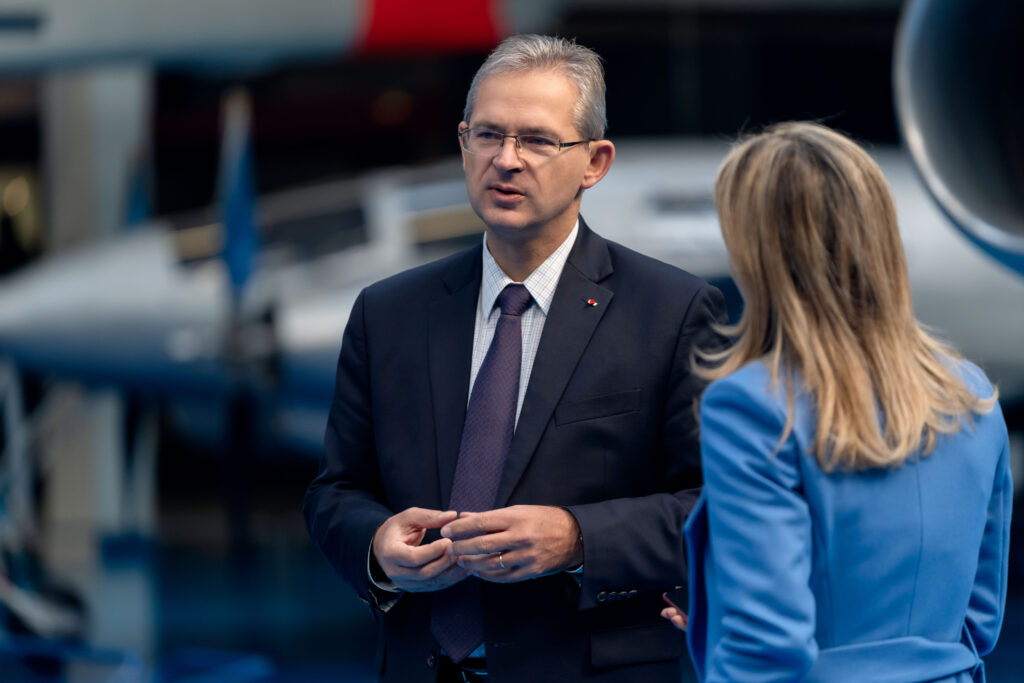
This question poses that of anticipation.
The role of any strategic analysis organization is to imagine the threats that can be exerted on our societies. Threats are characterized by two main factors: their dangerousness and their probability. Some are obvious, whether likely or not, but others are more difficult to grasp because of their more discreet nature.
Viral infections are one of them, but a large-scale pandemic is one of the unlikely events. It is always easier to favor threats with high probability and to invest less on those whose occurrence is much lower, especially if the investments, which they require, are significant. However, the preparation to face a very dangerous threat should not be neglected, like what the armies which always anticipate the most constraining crisis do, a war between States, with possible nuclear consequences, whereas this scenario has a low probability of occurrence. It is, however, the one who directs the main investments made in their defense by the States.
It is not possible to fight an opponent you cannot see. Detection then becomes a priority as well as the ability to characterize the threat and its modes of action to move and deploy itself. The mobility of the threat is an essential factor if we want to understand its strategy.
The anticipation consists in implementing as soon as possible the capacity to detect the adversary, here a virus which, if it is not seen with the eyes, can be detected massively. In the worst-case scenario, artificial intelligence technologies can at least provide indications of a suspected threat when that threat cannot yet be fully characterized.
The second part of the question concerns the strategy of this stealthy adversary. This strategy can be analyzed if we can follow it and therefore detect its movements.
Containment is a response widely adopted by nations in the Coronavirus crisis. It is an emergency response due to a lack of anticipation. Containment in its forts, within its walls, is a defense tactic that responds to a surprise. It’s a momentary preservation tactic. In the absence of an offensive strategy, it is a necessary withdrawal, which has the disadvantage of giving a false feeling of protection. False because talking about war, none has ever been won by a strategy of containment in a stronghold. If it is a real strategy, it is certainly a losing one, all the more with an enemy hardly visible. He can be everywhere but we then deprive ourselves of going to find him where he is and fight him on its ground. Containment is an immediate preservation tactic that is far not enough. It offers the short respite necessary for a counterattack based on a real offensive strategy.
The strategy adopted in South Korea has been to refuse containment and to go and fight the opponent, the virus, on its ground by massively detecting it. Without knowing the plans prepared by this country, it is very likely that the reaction adopted was not improvised but implemented a thought strategy which is based on modern technologies largely using digital. This strategy is focused on the offensive: going to detect the opponent where he acts, to better understand him and analyze his mode of proliferation. The strategy of an adversary is never unreadable when one seeks to flush him out to better track him. Korea therefore relied on massive and systematic detection accompanied by full traceability of the virus, which is to say of its means of proliferation.
The research and financial effort naturally focused on detection capabilities and then anticipating the reaction to infected people. Thanks to the detection, it was possible to anticipate the care and to exclude the infected people, therefore not to confine the population, but the virus itself. However, this process required being able to collect and share personal data, the use of which is by nature restricted in a democracy.
This is where a major political dimension comes in: the ability to decide that any individual carrying the virus can be permanently traced in complete transparency, in order to protect those who are healthy and to draw up a risk map around those who are infected to better anticipate the fight and carry it out on the opponent's terrain.
This strategy uses existing technologies, in particular via smartphones or other means of tracking individuals, but also a capacity to correlate large volumes of data to always better anticipate responses. Behind these analyzes there is certainly a central organization capable of merging the data and adapting the responses, an operations center with a “military” organization which day by day manages the loop of observation, orientation, decision, action and evaluation to then adapt the responses. This loop at the heart of air operations (OODA: Observe, Orientate, Decide, Act, Assess) has proven its effectiveness in the fight against all types of adversaries.
But, without data, none of these technologies, none of these processes, which inscribe a major evolution compared to previous pandemics that the world has known, no correlation is possible. To deprive oneself of testing is to deprive oneself of detection, of information on the adversary and to be satisfied with information a posteriori, that is to say counting deaths and new serious cases, instead of anticipating the adversary's mobility. It is to deprive yourself of modern means of fighting against an adversary when these means exist and when they mark a major disruption in the fight against this type of invisible enemy.
Conversely, giving oneself the means to obtain data on the opponent but without being able, for purely ethical reasons, to process them does not serve much purpose if it is not to do an ex post analysis.
The use of such technologies requires a major political decision in the use of personal data. When it comes to saving thousands of lives, this is a subject that nations should debate well in advance. This is a subject, replaced in the background of a state of emergency, which should be a priority in a Europe, which has a community of values on the use of data: how to acquire data, share it, store it and possibly exploit it in real time. It is the digital continuity of the process that must be debated at the political level, the digital champions providing the fields of the possible while the medical experts and those from all areas necessary for decision-making (logistics, industry, etc. ) the elements allowing to build a relevant digital architecture adapted to this type of threat. It is therefore a question of changing paradigm and implementing a digital transformation of the fight against a stealthy and contagious adversary. Like any digital transformation, it is based on the interaction between data and people and the ability to create large ecosystems capable of managing a large-scale crisis by combining three pillars: structures, experts and the relational pillar essential for ensuring the relationship between the first two and their orientation towards a common and shared objective.
Anticipation in the fight against an invisible adversary therefore requires anticipation of the ability to detect it, but also anticipation of the political decisions that will be necessary to use technologies based on data science and build the fight on the basis of a real digital transformation which imposes profound changes in the functioning of the State and its various public or private forces. Such a transformation allows a better distribution of roles by decentralizing the struggle, an action made possible by building an adapted digital architecture.
We are in the 21st century. A complex century where surprises are more and more inevitable, making the prediction of crises more uncertain and making resilience a necessity. But resilience relies on the ability to anticipate threats and the ability to combat them. In the event of a pandemic, it is doing everything to detect the virus and trace it to isolate it. Isolating it maintains the capacity for action and movement for people who are not infected and maintains the economic and industrial activity of states, while confinement also isolates healthy people and structures with the sole alternative to wait to be hit in turn. Isolating it also helps to better focus efforts in the battle against the virus and to optimize the forces capable of fighting it.
We are in the 21st century, a century in which new technologies enable large-scale data management to assist in decisions. The disruption to face such an adversary comes from the ability to adopt a digital transformation that upsets traditional processes and allows greater reactivity in the struggle. It is this strategy that must be anticipated and which must be at the heart of the necessary reflection that will analyze the lessons learned from the 2020 crisis.
*****
As General Denis Mercier has just presented to us, we are living in a disruptive period in many respects. Our beliefs and habits are turned upside down. Our ability to anticipate is taken against the grain and our future, called into question.
This disruption is also driven by the digital transformation of our world, our industries, our daily lives. But we are in the middle of a bend, in the middle of the lookout. The moorings have been dropped and the opposite bank is still blurred. The feedback from the digital world is very immature and insufficient for us to master it as we would for ancestral practices. Containment strategies can only be temporary, a respite before the counter-attack. The use of artificial intelligence as it is learned therefore seems to be our only solution.
The General testifies how much anticipation is important in resilience and how much the digital world can be used to us in these uncertain times. It was therefore logical to wonder how an industrial coped with this period of pandemic.
The following article has been written taking the best verbatim of interviews with personalities in charge of security within industries. We wanted to know how an international group was coping with this crisis, with particular angle of security.
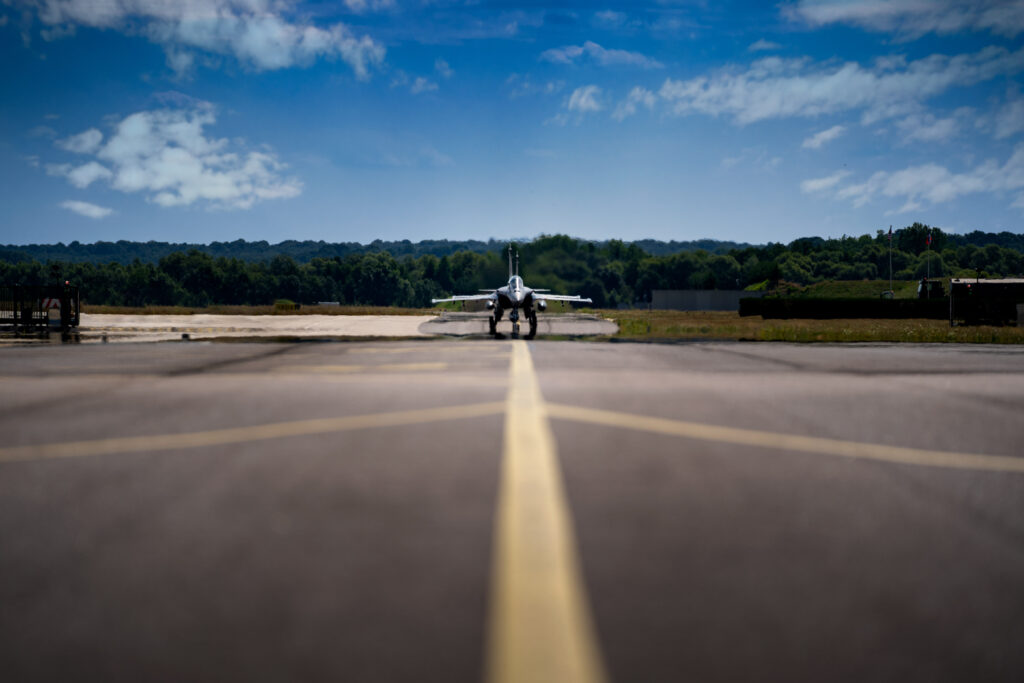
So many questions that many companies are asking themselves at the moment.
Thus, let's take our magnifying glass and try to delve a little more into the world of industry...
We have not drawn smart conclusions from the Ebola virus time. It was indeed the best alarm we could have. Being at the same time, serious enough to alert us, while reasonably serious to get out of it anyway. Indeed, this is where the stick hurts, this is what it’s all about. Our traditional and innate resilience made us waiting for a return to normalcy, our heads firmly sunk into our shoulders until the storm has gone and the sun shining again. As we always do. Then, politics return to politics and industrials return to economics, life just restart. We forget and life continues…
In the aftermath of Ebola virus, Bill Gates made a visionary speech in April 2015 during a Ted meeting, highlighting our unpreparedness to such worldwide scourge when it shows up again. Noticing a total passivity of both governmental and international institutions, he triggered a simulation organized by his foundation and Johns Hopkins university in October 2019. This virus war game was an extraordinary anticipation of what happened 2 months later in Wuhan. It reminds us that anticipation and contingency planning is absolutely essential to security of any public or private organization.
Far be it from me any intention to make some easy retroactive strategy and accuse anyone of anything. Just lay out the facts and figure out how to get out of it now that we're in the thick of it. With Coronavirus, we are at least cumulating 2 crises: a medical one linked to the pandemic and a second, economic, caused as a worldwide result of it. From a security point of view we must avoid additional ones.
A Head of Security of an industrial company, has to enable the strategy of his CEO whatever the situation. In such crisis mode, this task is far more challenging. In a nutshell he has to ensure the management of this unprecedented crisis while ensuring the best level of security of all company’s assets, which are both our men and women, our products, our data, our tangible and intangible resources, directly affecting safety most of the time. With such medical crisis, the task is much more complicated. The Company is seriously weakened because number of its employees are absent either for reasons of health or/and because a government lockdown. In this context there is an increase number of physical aggressions and cyber-attacks, perpetrated by opportunistic aggressors which are putting in danger our critical assets, exactly like vultures are watching for injured animals to take advantage of their weaknesses. Employees are affected by the pandemic and like an army, the resistant, weakened forces must stand up to the front. More people in teleworking, less people on site. More exceptional decisions are taken to ensure remote working. Critical services are disrupted and require permanent special attention…
In addition, in such confinement situation, we have observed more singular initiatives from scattered confined individuals, diverging from the unique company’s security strategy. But concomitantly, we know that we must be able to release individual capacity for single initiatives while framing it so that collective action retains its meaning and purpose.
Security mission, in this situation, becomes vital for the company, much more than in routine conditions, although routine does not exist in our profession. We must ensure that all vital members of the company continue to perform their functions necessary to keep the economy alive. We must ensure the business continuity of our activities and protecting our people against the outbreak.
The mechanics of a company like ours is extremely complex. Its numerous cogs and their complex operating diagrams must continue to function without ceasing. The cessation of certain gears could have catastrophic consequences, up to the impossibility of restarting because of collateral damage on “satellite” services. Due to this situation, the pace of the business may decelerate, but must never stop. Just as the hibernating animal slows down its heart rate, the company must maintain its minimum vital capacities. His heart beats, slowly but never stops.
Security must ensure that at every cost, a secure flow of data, of information exchanges, of entry and exit of staff and subcontractors, of the supply chain and all associated contributors. And that, even with reduced capacities and means, like all others functions. The number of resources is moreover a critical factor in the functioning of an industrial enterprise whether it is of vital importance or not. Security for safety is one of these highly regulated professions both in terms of responsibilities and in the number of people present on site. No need to justify that the firefighters for example, must be in sufficient representation in order to keep the opening of a site. It is therefore absolutely necessary to preserve these resources from any viral illness even when they are in close contact with employees, subcontractors and visitors.
The Crisis Management Organization becomes absolutely essential. It plays an absolutely critical role. It works other more effectively if their procedures have been well prepared in advance. That's where the key to success lies.
At the crossroads between tactics and strategy, we must establish the best security crisis situational management in the light of new and unknown constraints and towards an unknown destination. The tactic here takes a certain advantage over the strategic. The operational execution of immediate decisions highlights the importance of these decisions as they condition the effectiveness of the level of protection on the anticipated path to exit from the crisis. Recently we merged Cybersecurity and Physical security activities because their threats are completely intermingled. It has drastically increased the effectiveness of our initiatives tenfold because, with a global threat, only a global organization can respond. The effectiveness of this decision is now delivering all of its large-scale substance as expected. The adequacy between the company-wide organization and the enterprise risk management thus makes it possible to supervise the risks of this invisible and anonymous enemy whose strategy is often illegible.
Cybersecurity experts are used to face “zero-day” viruses. Unknown enemy, without signature. Such analogy is not meaningless. Quarantine and containment are everyday practices of cyber specialists. However, contrary to popular belief, it is not only a defensive measure. It is both defensive and offensive. Our CERT(*) and SOC(**) experts dive into the depths of these troubled waters, trying to understand, divert and assess the threat to stem the effects and above all protect us from that evil, forever. A true virology laboratory. It’s an offensive strategy which aims to go face and fight this enemy where he acts, in order to understand and analyze his behavior, his targets and its mode of proliferation to finally fix it. That may be a kind of proposal for our decision makers, who are more inclined to flee the threat by defensive confinement without an offensive strategy in most cases / countries. A confinement must be associated to an offensive strategy. The “detect and respond” teams are playing such game. In the frame of the Covid pandemic, has to be faced, confinement can’t be a long term strategy.
The digitization of our environment, however, has healing virtues. We were able to analyze the extreme efficiency of the use of big data analysis on digital platforms in China. Indeed, not having constraints on the protection of personal data such as we have in Europe, the Chinese were able to feed immense databases on contagion, contaminated people, their frequentation and movements… amongst others…This made it possible to inform the population about the real situation and instruct them to act accordingly. Without knowing their enemy in detail, the implementation of this practice has certainly greatly contributed to the fact that China is following the right path out of the crisis. As such, Security data like access management, occupation schemes, flows identifications… are indeed powerful contributors to help in mitigate the pandemic. Our democracies should be able to match the Chinese data analytics effectiveness while protecting privacy rules. Let us hope that our encryption scientists will find the way to reach that goal…
Our resilience is changing, because our way to manage the crisis and our future will be different. This coronavirus pandemic is a world-shattering episode, the consequences are unknown although we are beginning to glimpse the seriousness of them. Beyond that, the pandemic will influence the nations and reinforce their nationalism, while admitting with difficulty that we cannot fight alone and that international cooperation will have to be strengthened to face up to this type of threat.
Security organization is adapting itself to the situation. It doesn’t fight the virus itself as the battle is more lead by HR and Health and Safety Direction, but security teams are obviously ensuring the business continuity of our company while suffering ourselves from this devil. If we try to make an analogy with our industry, we would dare to compare our current security management under crisis mode with that of an airplane to which we would make modifications during its flight while crossing a cloud of unknown composition for an unknown destination. The Captain must keep calm, define and maintain the correct course, while ensuring the consistency of the multiple unusual actions of a frightened crew.
We are all more or less trained to act under diverse and varied conditions but always predictable as a whole. But now we have to face the facts, coronavirus will change our crisis management models and processes. In particular that of learning to decide in uncertainty. Managers will have no other choice than to define models of action management in these unusual conditions. Over-using digital and its fast and real-time self-learning skills and capacities will help for sure.
In our company, however, we have witnessed many examples of the human spirit’s power. We do believe it is the same at larger national scale. Our medical staff, our employees, our managers are demonstrating resilience. These exceptional circumstances also discloses human’s characters and behaviors. We perceive the real leaders revealing themselves.
Such crisis will certainly engender seismic shock that will permanently shift global models of governance within industries and nations.
More than ever, we shall need to identify the risks and prepare ourselves to them. Companies must ponder the fact that some large European States were totally unprepared.
Anticipation is the key. Important lessons must be learnt from that unfortunate situation.
This time we should not “forget” and prepare another future.
Sincerely
Ana Paula Araujo MendesGeneral Denis Mercier for his particular contribution and all the other industry executives who participated in sharing their expertise in the field of Aerospace and Defense.
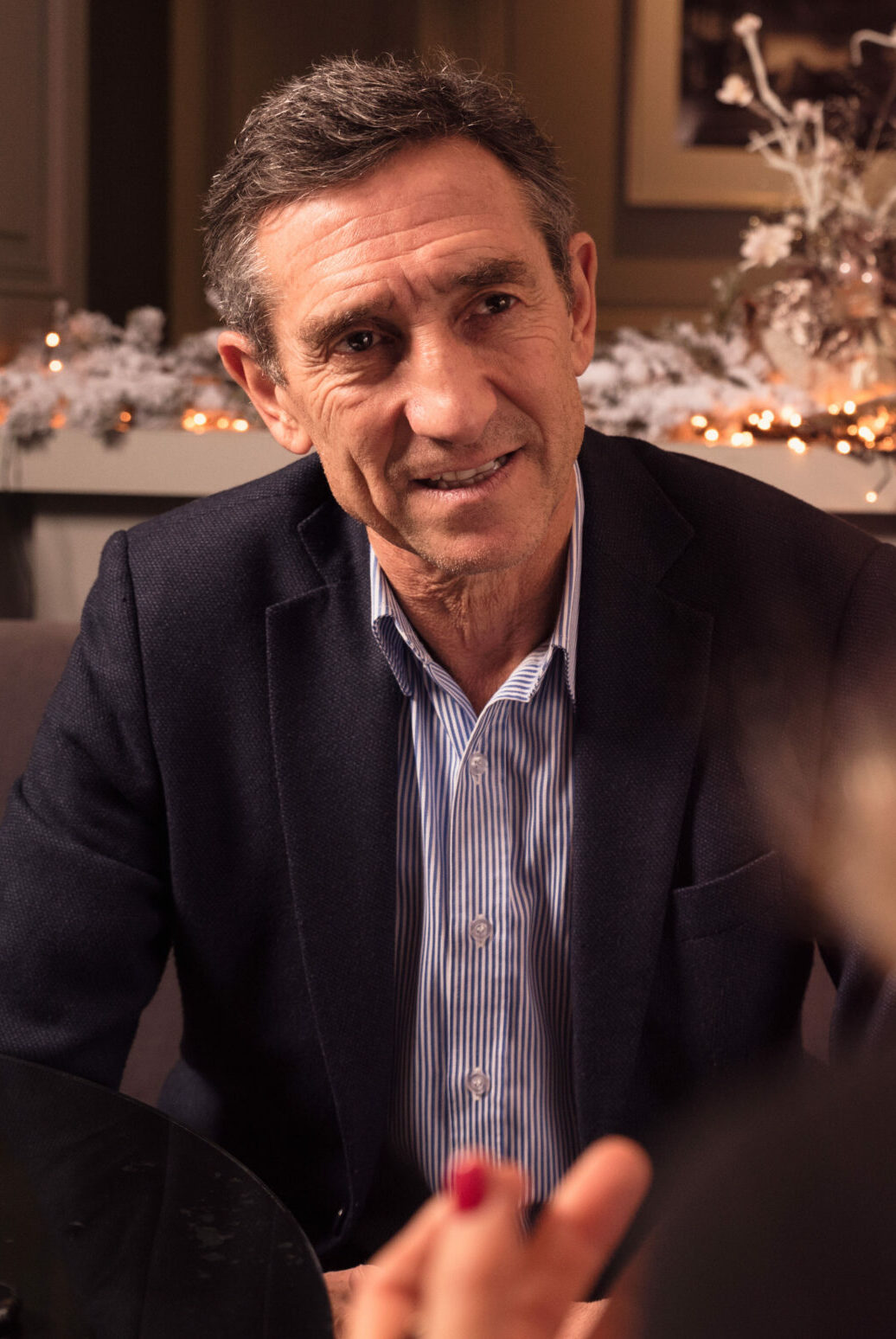
Aerospace and Defense Actors
Patrick Dutartre: Piloting your business with excellence. Leaders must inspire their employees.

Aerospace and Defense Actors
Isabelle Tisserand: Making Intelligence Smarter
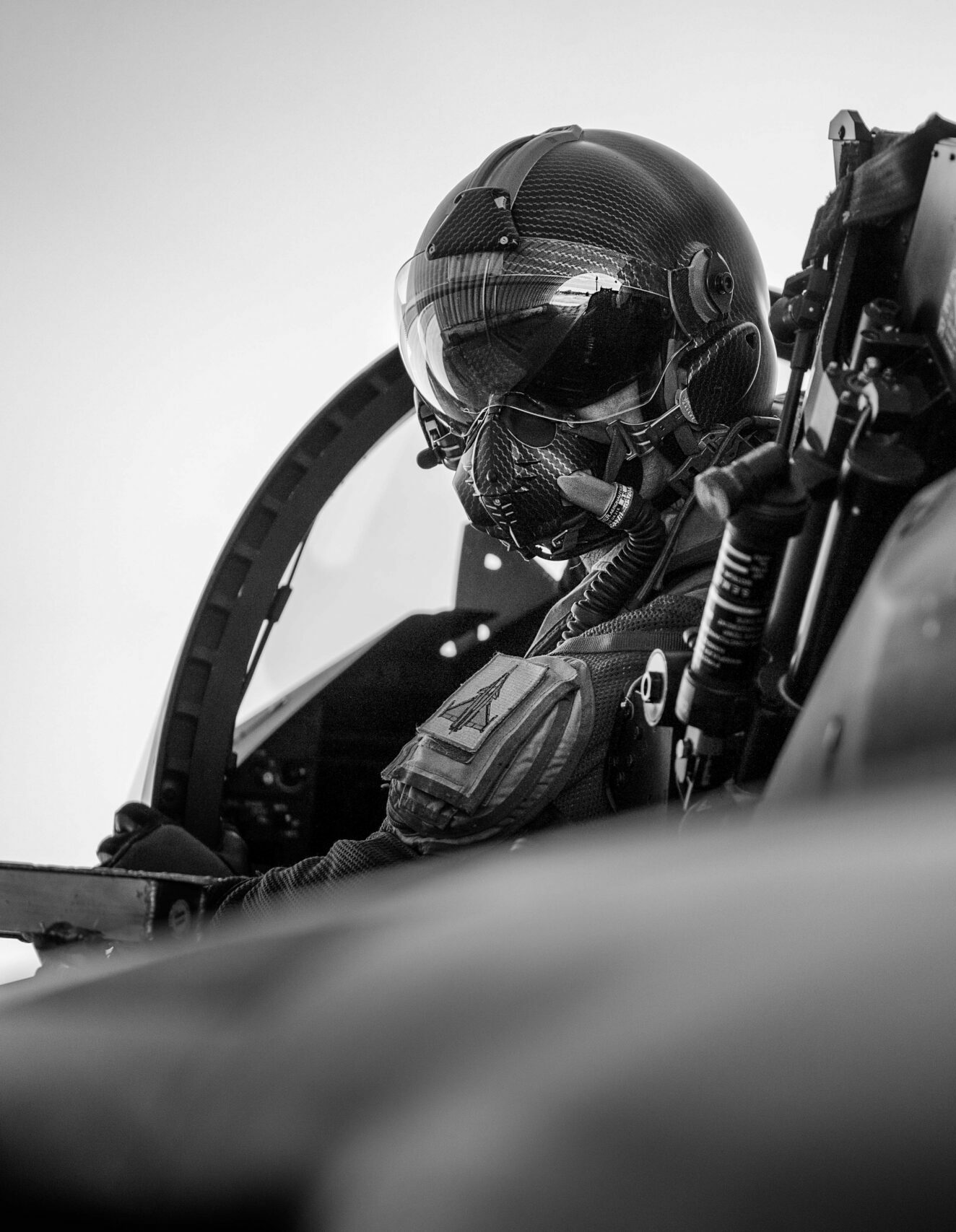
Aerospace and Defense Actors
The New Resilience Paradigm: The Face of the World After Coronavirus

Aerospace and Defense Actors
Alain JUILLET: Competitive Intelligence “Seeking heads”
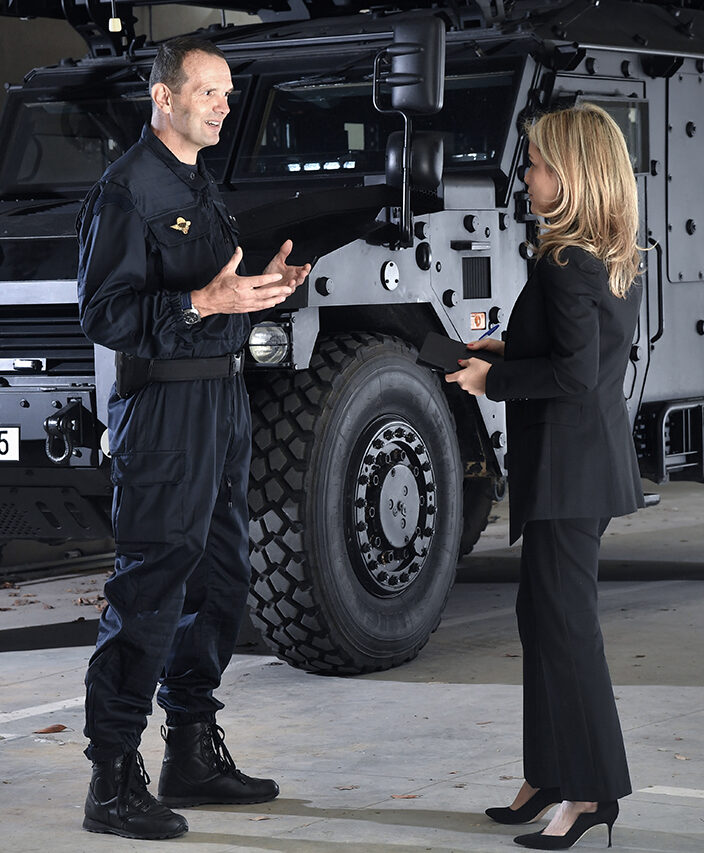
Aerospace and Defense Actors
General Ghislain Rety: Live With Honor, Die in Silence—The French Government’s Secret Weapon GIGN
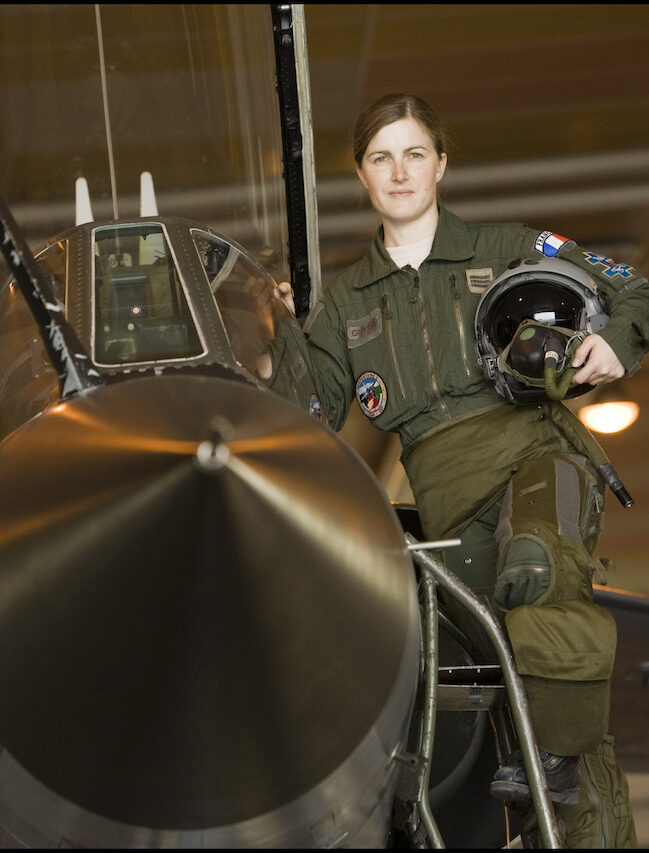
Aerospace and Defense Actors
Virginie Guyot - Fighter Pilot: True Leaders Inspire a Shared Purpose
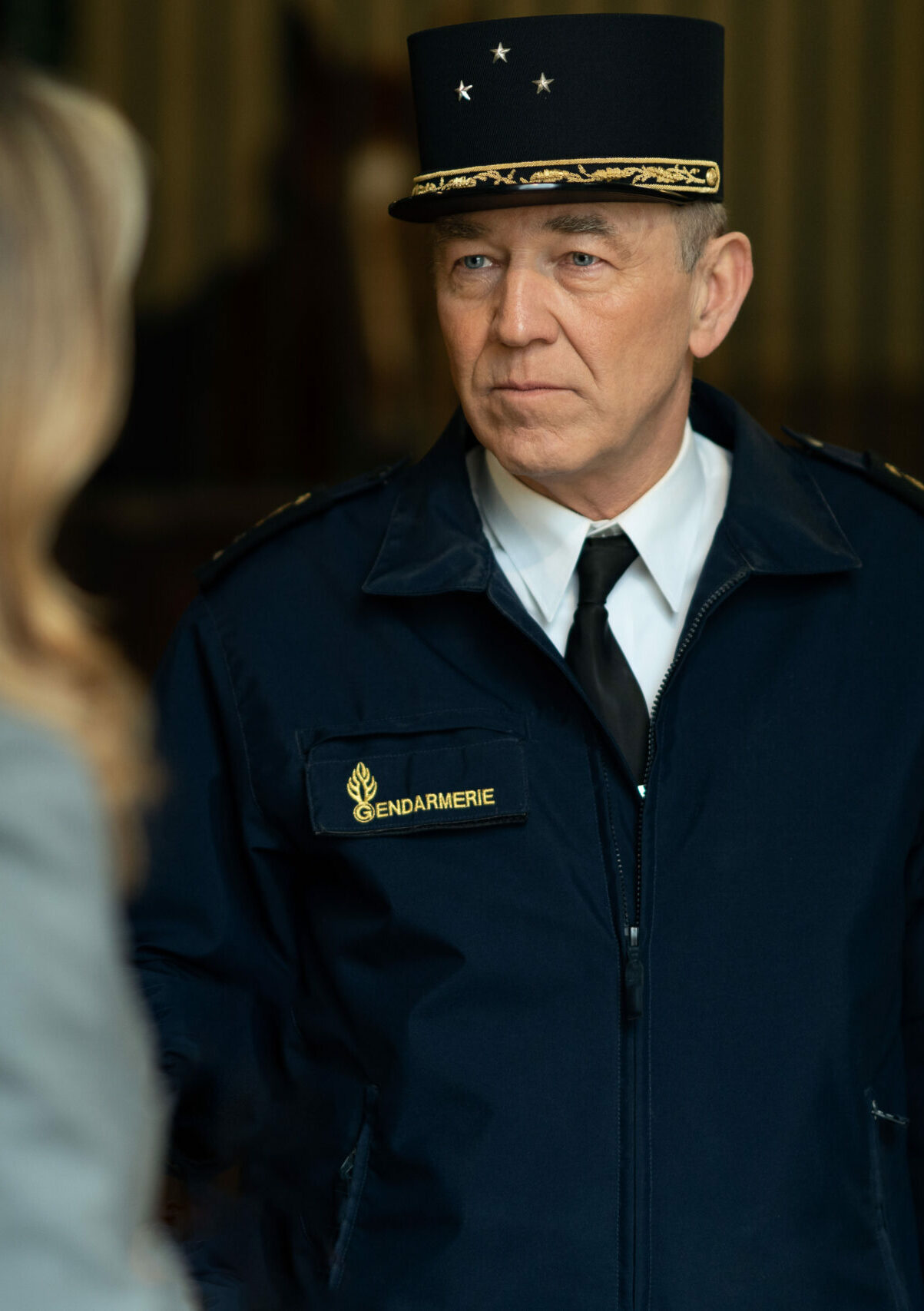
Aerospace and Defense Actors
General Damien STRIEBIG: Information Management - How Do You Prepare a Major unit for the Unpredictable
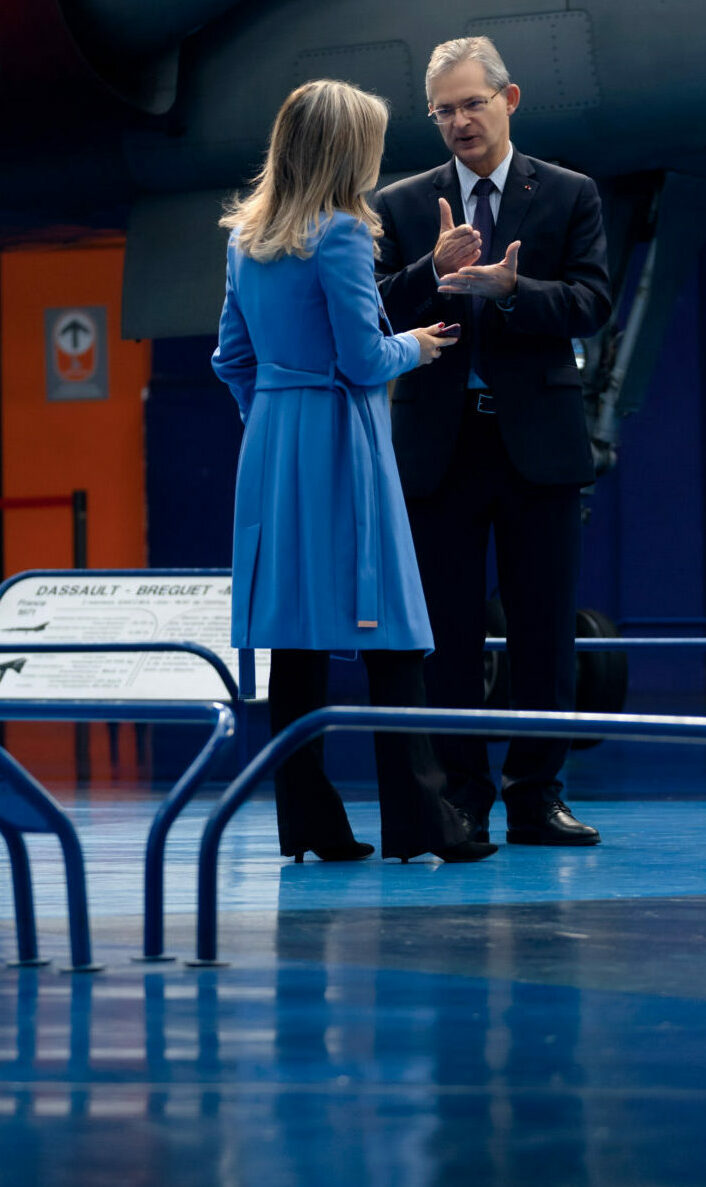
Aerospace and Defense Actors
General Denis MERCIER: Who is our enemy in reality?
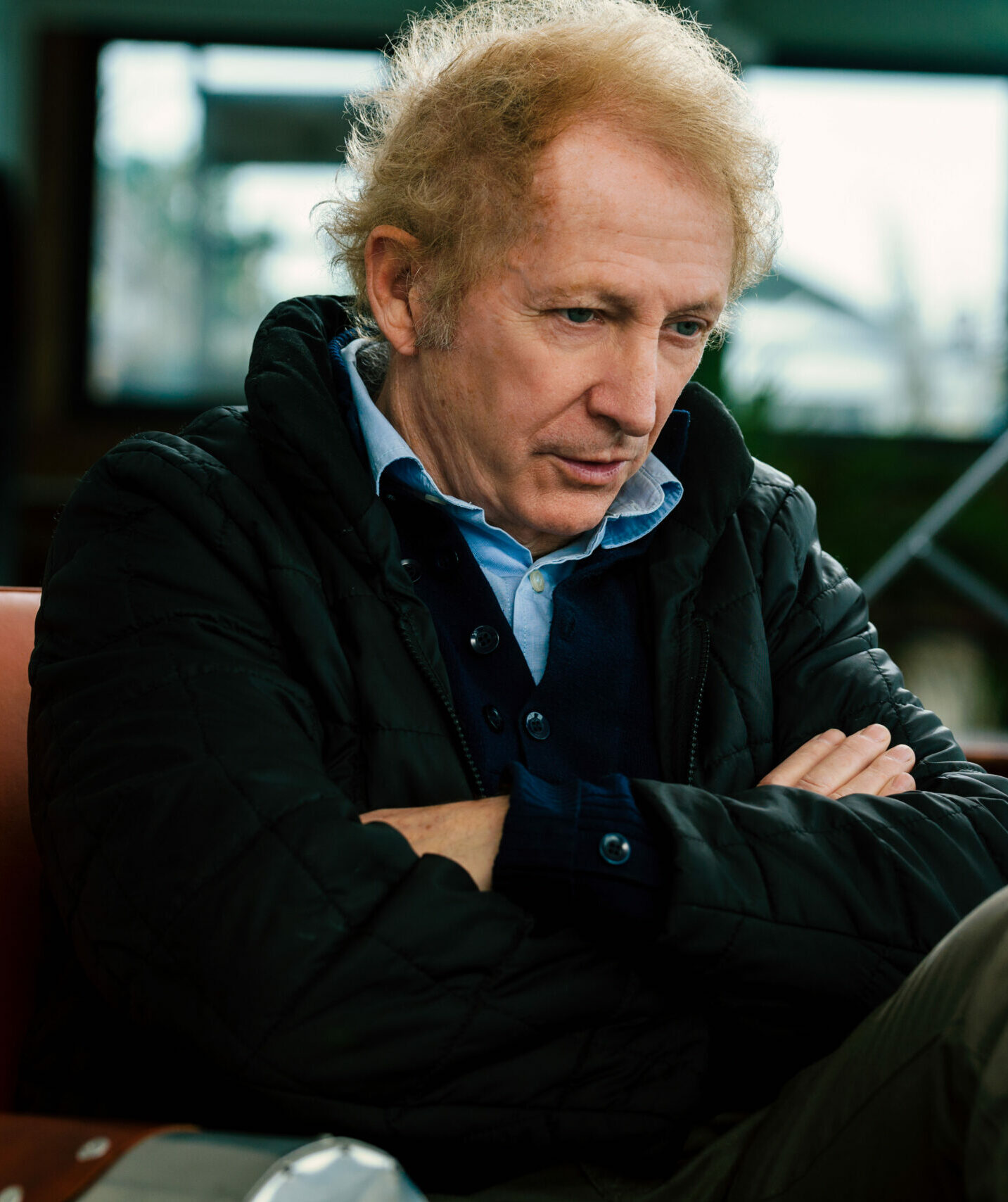
Aerospace and Defense Actors
Gérard Feldzer - Fighting for Peace; A World Without Frontiers

